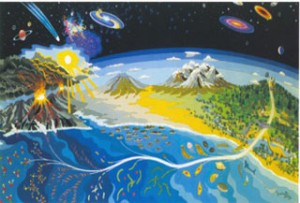Weekly Science Picks


It’s that time again! Time for Weekly Science Picks! Let’s dive in.
This is interesting. This could really make things interesting. You just need to read this article on climate change and emissions that appeared in The Australian. It opens up a whole can of worms for debate, which I may tackle later, so feel free to leave a comment. I’d love to hear some thoughts on this.
Doha sets up $3bn hit for taxpayers as climate deal fails to deliver on emissions targets by David Crowe
“We can’t be allowed to free ride off the suffering of others,” he said yesterday. – John Connor, chief executive, Climate Institute
This is one of those stories that gets you excited and makes you wish you were part of that research team on assignment. I am anxiously awaiting the results. Earlier this week, drilling began at Lake Ellsworth in Antarctica. This project is testing the environments of where life is possible and has implications for future space exploration and discovery.
Drilling begins at lake hidden beneath Antarctic by David Shukman
“Exploring for life in such an extreme environment – in pitch-black conditions under high pressure beneath the ice-sheet – could open up possibilities for life on other worlds such as Jupiter’s moon Europa.” – Professor Martin Siegert, chief scientist
There’s so much focus and emphasis on space these days, that we forget about that big blue thing that covers 71% of our planet and is in need of some major TLC…ah, the ocean! The Argo data program started in the late 1990s and has since been put to use in weather and climate models. It’s also playing a major role in ocean forecasting, such as responding to environmental emergencies, helping the shipping industry and promoting safety at sea.
Ocean science robot revolution hits symbolic millionth milestone by CSIRO
“The world’s deep ocean environment is as hostile as that in space, but because it holds so many clues to our climate future exploring it with the Argo observing network is a real turning point for science. – Dr Susan Wijffels, Argo co-Chair and CSIRO Wealth from Oceans Flagship scientist
And tying it all back to the source of what’s important, the kiddos. This last pick comes from one of our very own Australian Science authors, Danielle Spencer. Here Danielle examines the importance of play-based learning in the science classroom.
We’re Just Playing, Science by Stealth by Danielle Spencer
Play-based learning is highly sanctioned in early year’s curriculum, but why do we need to stop? Ask any child who doesn’t like science and it’s about too much writing, too much theory, too much bookwork. Maybe, we just should let them play some more.
Stay thirsty for knowledge, my friends. Stay thirsty.
 Follow
Follow